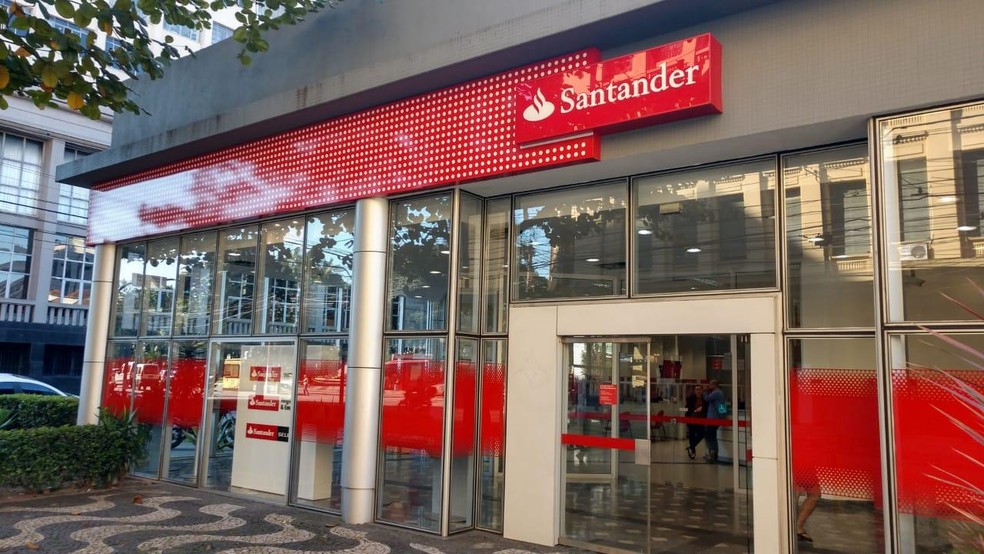RIO DE JANEIRO, BRAZIL – Less than a month ago, Santander Brasil had about 65% of its administrative workers back in the offices, contrasting with its two biggest rivals, Bradesco and Itaú Unibanco, which continued to have almost all administrative staff working from home.
Now, under pressure from employees and health authorities trying to intervene in the out-of-control Covid pandemic, the Spanish bank’s Brazilian unit is sending more employees to work at home.

“The great drama is that all the hospitals are full, the banks are sending employees home,” says the president of the São Paulo bankers’ union, Ivone Silva. “After we fought a lot, Santander reduced the number of employees in the offices to 30%,” Silva said.
Last Wednesday (25), Santander said in a statement to the union that it will further reduce the size of the teams working in its headquarters in São Paulo, but did not inform the exact size of the reduction.
Santander Brazil did not want to comment on Silva’s statement that this only happened because of union pressure. In a statement to the employees, it said that the decision to empty the buildings is due to the recrudescence of the pandemic.
In Spain, a third wave of Covid also forced headquarters to send workers back home, reducing the percentage of in-person workers to 30% to 40% in January and February from 50% to 60% in December. Now the bank is back to December levels, according to a spokesman.
Santander Brazil’s turnaround is the latest sign of tension between companies anxious to reopen offices and the coronavirus pandemic.
Santander Brazil’s turnaround is the latest sign of tension between companies anxious to reopen offices and the coronavirus pandemic.
Banco BTG Pactual, Latin America’s largest independent investment bank, also recently reduced the percentage of employees working at the bank’s headquarters from 30% to just 10%, according to partner Mateus Carneiro, who heads the Human Resources department.
In an interview with Reuters, Carneiro said that even with security protocols in place at the office, the return to remote work is inevitable at this time to reduce the risks of contagion in transportation, and considering the health system is close to collapse.
Employees who continue to work at headquarters are tested for Covid twice a week and keep workstations away from each other. “We had hoped to be in a different situation by now, but for security reasons we preferred to reduce the staff working face-to-face.”
In the long term, remote work should not be the norm at BTG, Carneiro said. The bank expects to have only 15% to 30% of its 3,800 employees working remotely once the pandemic is under control.
Internal discussions at the bank have concluded that in the long term, once the pandemic has passed, physical presence is important for investment banking, for mentoring younger employees by executives and for disseminating the bank’s culture.
There is still resistance to the idea of remote work. President Jair Bolsonaro, after months of downplaying the pandemic, said that the fact that Petrobras CEO Roberto Castello Branco worked from home was “unacceptable.”
“Some Brazilian companies, especially medium-sized ones, are still very controlling and want employees around,” says Tatiana Iwai, a professor specializing in corporate culture at Insper.
The CEO of Santander Brazil, Sergio Rial, has criticized remote work, saying that it hinders the dissemination of the bank’s culture. “I don’t see remote work as a great revolution. It’s not a panacea, something as transformational as one might imagine,” Rial said in a conference call.
Banks are among the largest employers in Brazil, with 450,000 employees working in widely varying roles, from branch attendants to traders and investment bank executives.
Bradesco and Itaú Unibanco have kept 94% to 97% of their administrative staff working from home. The banks’ CEOs said this month that they still have no idea when it will be possible to return to the office. But they said that remote work should be adopted at least for a portion of the time when the pandemic is over.
In Europe, HSBC, Lloyds, Nationwide Building Society, and Santander UK are already planning to downsize their offices and adopt remote work combined with face-to-face work on a large scale.
At the same time, Santander and Itaú in Brazil are not following a government recommendation to open their branches for less than five hours per day, according to the bankers’ union. Most banks have cut back on branch hours, but have slowly returned to longer opening periods.
In a statement to customers on Wednesday, Santander said it would temporarily close some branches for the next two weeks as an emergency measure to try to reduce Covid contagion, and would reduce branch hours by one hour. Itaú also said in an email to Reuters that its branches will have hours reduced by one hour starting this Friday.
Source: Época Negócios.

